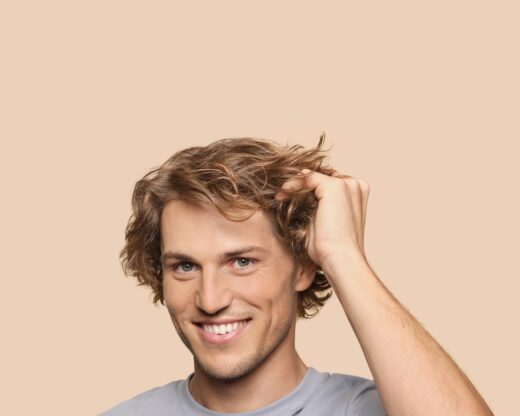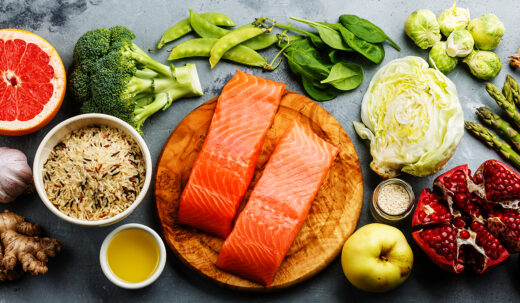Hair Growth and the Importance of Nutrients

Vitamins and minerals are fundamental to maintaining overall well-being, including the health of your hair. These micronutrients support numerous bodily functions, ensuring optimal hair follicle activity and scalp condition. A complete deficiency of any essential nutrient can lead to health complications, including hair thinning and loss. However, in developed regions, severe vitamin deficiencies are uncommon and typically linked to restrictive diets or specific medical conditions.
Women who experience heavy menstruation and do not consume sufficient iron-rich foods may develop an iron deficiency, requiring supplementation. Similarly, individuals living in areas with minimal sun exposure may be deficient in Vitamin D and should consider taking supplements to maintain proper levels. While most essential vitamins are naturally present in a balanced diet, oral supplements can provide additional support.
It is crucial to be cautious with excessive vitamin intake, as it can either lead to adverse health effects or be excreted unused. Although numerous hair-growth supplements are available, consumers should prioritize cost-effective and scientifically-backed options.
Essential Vitamins for Promoting Hair Growth

Biotin
Biotin, a B-complex vitamin, plays a pivotal role in maintaining hair strength. While a biotin deficiency can lead to hair thinning, such cases are rare and often associated with biotinidase deficiency—an inherited disorder. In healthy individuals with a well-balanced diet, biotin supplementation has not been proven to accelerate hair growth. Deficiency can be triggered by factors such as excessive raw egg consumption, pregnancy, alcohol abuse, or long-term use of antibiotics and isotretinoin. Notably, excessive biotin consumption may interfere with diagnostic tests, including those for thyroid function and pregnancy.
Sources of Biotin
This vitamin is widely available in natural food sources, including eggs, liver, whole grains, nuts, dairy, and vegetables, ensuring sufficient intake even for vegetarians and vegans.
Recommended Daily Intake
Although there is no established FDA guideline for biotin intake, a daily dose of 30 mcg is considered sufficient. Despite this, specialists often recommend doses up to 5,000 mcg for those seeking hair health benefits.
Potential Risks of Excess Intake
No toxicity has been reported with high biotin doses, even at 100,000 mcg per day. However, there is no scientific evidence that excessive intake contributes to improved hair health.
Vitamin D
Vitamin D is essential for various physiological functions, including hair follicle cycling. Although research indicates that Vitamin D deficiency may contribute to hair thinning, the exact mechanism remains unclear. Some cases of hair regrowth have been reported following Vitamin D correction, but overall, supplementation does not guarantee significant results.
Sources of Vitamin D
Vitamin D is naturally present in fatty fish (such as salmon and sardines), egg yolks, mushrooms, and fortified dairy products. Many individuals fail to obtain sufficient levels due to inadequate dietary intake and limited sun exposure.
Recommended Daily Intake
Experts suggest consuming 2,000–5,000 IU daily, with routine blood tests to ensure adequate levels. Severe deficiencies may require short-term high-dose supplementation under medical supervision.
Potential Risks of Excess Intake
Vitamin D levels exceeding 80 ng/ml are considered excessive, while toxicity occurs at levels above 150 ng/ml. Overuse can lead to calcium buildup in the body, potentially causing kidney stones, confusion, nausea, and dehydration.
Vitamin A
This fat-soluble vitamin is crucial for vision, immune function, and cellular growth, including that of hair follicles. Both insufficient and excessive intake can impact hair health, with deficiencies leading to follicular keratinization. Pregnant women should exercise caution, as high doses can lead to congenital disabilities.
Sources of Vitamin A
Vitamin A is found in a variety of foods, including carrots, sweet potatoes, spinach, dairy, and liver. The liver stores Vitamin A, ensuring a steady supply even when intake is inconsistent.
Recommended Daily Intake
The daily recommended intake is 900 mcg RAE (3,000 IU) for men and 700 mcg RAE (2,333 IU) for women.
Potential Risks of Excess Intake
Excessive Vitamin A can result in nausea, dizziness, blurred vision, fatigue, liver issues, and skin changes. Severe toxicity, though rare, has been reported in extreme cases, such as after consuming polar bear liver.
Vitamin C
Vitamin C is vital for collagen synthesis and enhances iron absorption, indirectly supporting hair growth. Severe deficiency leads to scurvy, which can cause brittle and fragile hair. Smokers require higher Vitamin C intake due to impaired absorption.
Sources of Vitamin C
Rich sources include citrus fruits, bell peppers, broccoli, strawberries, and tomatoes.
Recommended Daily Intake
Men require 90 mg daily, while women need 75 mg, with increased needs during pregnancy and breastfeeding.
Potential Risks of Excess Intake
Although Vitamin C is water-soluble and excess amounts are excreted, excessive intake can cause gastrointestinal discomfort, insomnia, and, in rare cases, kidney stones.
Vitamin E
As an antioxidant, Vitamin E protects cells from oxidative stress, which may contribute to hair thinning. While its exact impact on hair growth is unclear, ensuring adequate intake supports overall health.
Sources of Vitamin E
Good sources include nuts, seeds, avocados, wheat germ oil, and fish.
Recommended Daily Intake
A daily intake of 15 mg (22.5 IU) is recommended for adults.
Potential Risks of Excess Intake
High doses (20 times the recommended intake) can cause nausea, dizziness, stomach cramps, and blurred vision.
Essential Minerals for Hair Health
Iron
Iron deficiency is among the most common causes of hair thinning, particularly in women. While low ferritin levels have been linked to hair loss, the correlation remains debated.
Sources of Iron
Iron is abundant in red meat, poultry, seafood, legumes, and fortified cereals.
Recommended Daily Intake
Men and postmenopausal women require 8 mg daily, while premenopausal women need 18 mg.
Potential Risks of Excess Intake
Excess iron can cause oxidative stress, leading to organ damage and, in severe cases, fatal toxicity.
Magnesium
Magnesium aids in protein synthesis, including keratin formation, essential for hair structure. While some suggest a link between magnesium deficiency and premature graying, strong evidence is lacking.
Sources of Magnesium
It is present in leafy greens, nuts, seeds, and dairy products.
Recommended Daily Intake
Men need 400–420 mg per day, while women require 310–320 mg.
Potential Risks of Excess Intake
Severe toxicity is rare but can cause irregular heartbeats, low blood pressure, confusion, and respiratory issues.
Zinc
Zinc supports hair follicle function, with deficiencies occasionally contributing to hair thinning. However, supplementation does not consistently lead to regrowth.
Sources of Zinc
Rich sources include meat, shellfish, nuts, and eggs.
Recommended Daily Intake
Men need 11 mg, while women require 8 mg daily.
Potential Risks of Excess Intake
High zinc levels can result in nausea, vomiting, and immune suppression.
Choosing the Right Supplements
A well-balanced diet typically provides sufficient nutrients for hair health. Expensive hair-growth supplements are often unnecessary and lack substantial scientific backing. Consulting a dermatologist can help identify any deficiencies and determine the best course of action.
Conclusion
While vitamins and minerals play an essential role in hair health, deficiencies are rare in well-nourished individuals. Addressing underlying deficiencies can contribute to hair improvement, but patience is necessary, as hair growth takes time. Those experiencing hair loss should seek medical advice for targeted treatments and interventions.
Why Choose Erdem Hospital for Hair Restoration?

Erdem Hospital is a trusted leader in hair restoration and treatment, offering advanced solutions for hair loss with expert specialists and cutting-edge technology. Our personalized approach ensures natural, long-lasting results.
Our Hair Treatments:
- Hair Transplantation (FUE & DHI): Permanent, natural-looking results with minimal downtime.
- PRP Therapy: Uses your own plasma to stimulate hair growth and strengthen follicles.
- Mesotherapy: Nourishes the scalp with essential vitamins and minerals for healthier hair.
- Hair Therapy: Specialized treatments to prevent hair loss and improve hair quality.
With high patient satisfaction, modern facilities, and expert care, Erdem Hospital is the ideal choice for safe and effective hair restoration. For the best solution just contact with us!